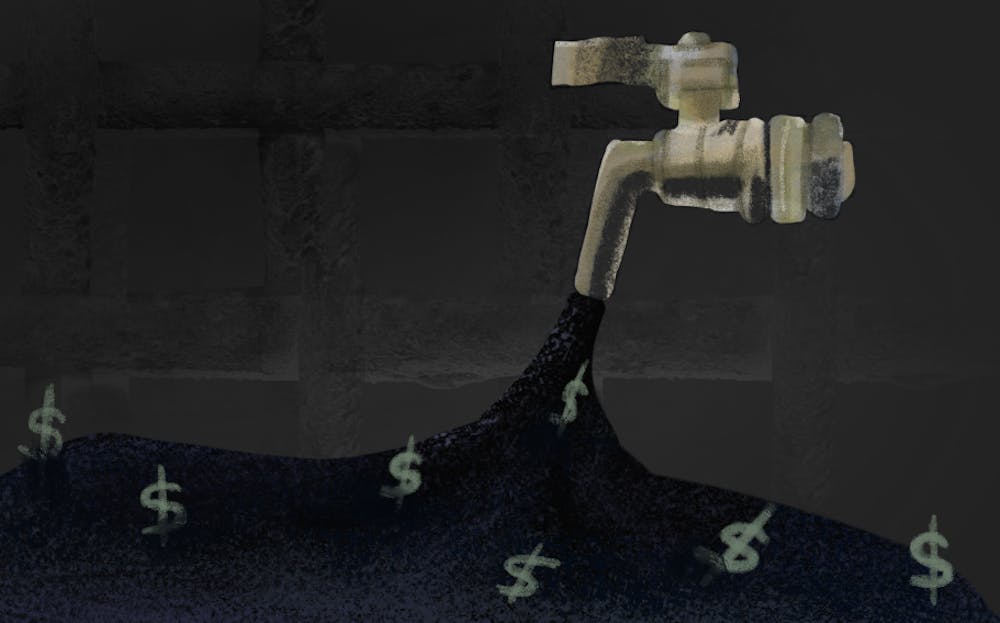
Students received an email from Penn President Amy Gutmann last month, which mentioned various actions and investment decisions the University is adopting in response to climate change.
In the announcement, Gutmann wrote that Penn would not hold any direct investments in the coal or tar sand industries moving forward. Notably, she did not discuss a potential divestment from the fossil fuel industry as a whole, which has been a goal of campus groups such as Fossil Free Penn in recent years. Vice President of University Communications Stephen MacCarthy also wrote to The Daily Pennsylvanian that Gutmann’s announcement does not represent a formal divestment action, as Penn did not have investments in coal and tar sands in the first place.
While FFP has highlighted the moral implications of Penn investing in fossil fuels, there is another often-ignored reason why the University’s actions are detrimental. Penn fails its students, faculty, staff, and alumni by investing its multi-billion endowment in ways that will likely provide a lower financial return than it could with fossil fuel divestment.
Despite normal ups and downs, the stock market has generally performed well in the United States over the past five years. The S&P 500 Fossil Fuel Free Index, which measures the financial performance of S&P 500 companies that do not own fossil fuel reserves, has produced an annual return of 10.85% over that time span. When the window is reduced to three years, or even one year, the index looks even better, with annual returns of 13.68% and 22.49%, respectively. Although past performance does not necessarily predict future performance, these numbers demonstrate that divesting from fossil fuels would likely not cause a decrease in Penn’s endowment value. In fact, the opposite is much more likely to be true.
The S&P 500 Energy Index, which includes the performance of S&P 500 companies that focus on oil, gas, and other fossil fuels, has lost significant value in recent years. The five-year, three-year, and one-year returns for the index are -6.74%, -8.22%, and -13.53%. These figures are abysmal, given that the economy as a whole has grown over that time.
Investing in essentially any other major industry, such as consumer goods or technology, for the past five years would have been better for Penn than investing in fossil fuels. These financial differences are likely to become more exaggerated as time goes on, because current economic trends are extremely unfavorable for large oil and gas companies. Advancements in fracking technology have put fossil fuel supply at an all-time high, while a shift to renewable energy and increasing protests from environmental groups have reduced demand.
The health of the University’s investments is important to the entire Penn community, as part of the endowment is used each year to fund essentials like courses and financial aid. If Penn continues to invest in fossil fuels, it will not only support an industry that is hurting our planet, but also waste money on a dying industry. And that isn’t good for anyone, regardless of political view.
Editorials represent the majority view of members of The Daily Pennsylvanian, Inc. Editorial Board, which meets regularly to discuss issues relevant to Penn's campus. Participants in these meetings are not involved in the reporting of articles on related topics.
The Daily Pennsylvanian is an independent, student-run newspaper. Please consider making a donation to support the coverage that shapes the University. Your generosity ensures a future of strong journalism at Penn.
Donate





